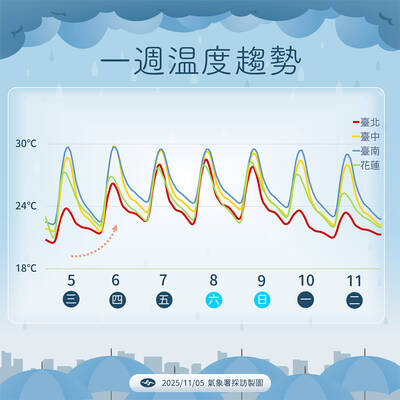Environmental groups yesterday challenged a multibillion-dollar expansion of the Formosa Plastics Group’s (FPG) naphtha cracker complex in Yunlin County’s Mailiao Township (麥寮), saying the county government illegally issued emission licenses without a proper review.
The planned NT$11.98 billion (US$366.13 million) project has been frozen since August last year amid a row over air pollution standards.
An environmental impact assessment (EIA) review in Taipei yesterday between the EIA committee, FPG and environmental groups — the fourth such review since August last year — failed to reach a consensus on the plant’s emission quota, leaving the project in limbo.
EIA committee member Lee Yu-ming (李育明) said that a plant run by Formosa Heavy Industries Corp received a higher emission quota than that approved by the EIA committee in 2012, adding that such a thing should not have happened and should never happen again.
Environmental groups said that the Yunlin Environmental Protection Bureau had renewed dozens of emission licenses to different plants in the naphtha cracker complex ahead of their expiration dates, while raising the emission quotas without any EIA review, moves they said were against the law.
“The Yunlin County Government gave operating licenses to plants applying for expansion, but the expansion project has not yet been approved,” Taiwan Water Conservation Alliance spokesperson Chen Jiau-hua (陳椒華) said.
“In March last year, the county government gave an emission quota of 146.88 tonnes of volatile organic compounds [VOCs] per year to a superabsorbent polymers [SAP] plant in the complex, which was allowed only 13 tonnes of VOCs per year by the EIA committee,” Chen said. “That should be looked into by prosecutors or the Control Yuan.”
Producing an emission license for the SAP plant that appeared to conflict with the one presented by FPG, Chen said a particular manufacturing process — E329 — was listed on the license she collected, but not on the one FPG had, adding that the company either neglected or deliberately excluded a polluting source from the permissible emission quota.
The environmental groups called on the EIA committee to stop reviewing the project until all statistics are cleared up and an emission calculation mechanism is established.
However, FPG said the data it provided were accurate and truthful, while the difference between its data and the environmental groups’ numbers must be due to the environmental groups’ miscalculation.
The groups miscalculated because they counted the emission of auxiliary manufacturing processes, such as the E329 process, in addition to the entire permissible emission quota, while all the manufacturing processes of a plant are counted as a whole, FPG said.
Every modification of the manufacturing process requires reapplication of the operating license with the local government, which was why the county government renewed the licenses before they expired, the company said.
Recommending that FPG make its emission calculation method public and have it approved by a third-party, one EIA committee member said that the emission numbers should be easily clarified, but since they were not, a five-party meeting between the company, the Environmental Protection Administration, the EIA committee, the county government and environmental groups should be held.

Three Taiwanese airlines have prohibited passengers from packing Bluetooth earbuds and their charger cases in checked luggage. EVA Air and Uni Air said that Bluetooth earbuds and charger cases are categorized as portable electronic devices, which should be switched off if they are placed in checked luggage based on international aviation safety regulations. They must not be in standby or sleep mode. However, as charging would continue when earbuds are placed in the charger cases, which would contravene international aviation regulations, their cases must be carried as hand luggage, they said. Tigerair Taiwan said that earbud charger cases are equipped

Foreign travelers entering Taiwan on a short layover via Taiwan Taoyuan International Airport are receiving NT$600 gift vouchers from yesterday, the Tourism Administration said, adding that it hopes the incentive would boost tourism consumption at the airport. The program, which allows travelers holding non-Taiwan passports who enter the country during a layover of up to 24 hours to claim a voucher, aims to promote attractions at the airport, the agency said in a statement on Friday. To participate, travelers must sign up on the campaign Web site, the agency said. They can then present their passport and boarding pass for their connecting international

UNILATERAL MOVES: Officials have raised concerns that Beijing could try to exert economic control over Kinmen in a key development plan next year The Civil Aviation Administration (CAA) yesterday said that China has so far failed to provide any information about a new airport expected to open next year that is less than 10km from a Taiwanese airport, raising flight safety concerns. Xiamen Xiangan International Airport is only about 3km at its closest point from the islands in Kinmen County — the scene of on-off fighting during the Cold War — and construction work can be seen and heard clearly from the Taiwan side. In a written statement sent to Reuters, the CAA said that airports close to each other need detailed advanced

UNKNOWN TRAJECTORY: The storm could move in four possible directions, with the fourth option considered the most threatening to Taiwan, meteorologist Lin De-en said A soon-to-be-formed tropical storm east of the Philippines could begin affecting Taiwan on Wednesday next week, the Central Weather Administration (CWA) said yesterday. The storm, to be named Fung-wong (鳳凰), is forecast to approach Taiwan on Tuesday next week and could begin affecting the weather in Taiwan on Wednesday, CWA forecaster Huang En-hung (黃恩鴻) said, adding that its impact might be amplified by the combined effect with the northeast monsoon. As of 2pm yesterday, the system’s center was 2,800km southeast of Oluanbi (鵝鑾鼻). It was moving northwest at 18kph. Meteorologist Lin De-en (林得恩) on Facebook yesterday wrote that the would-be storm is surrounded by